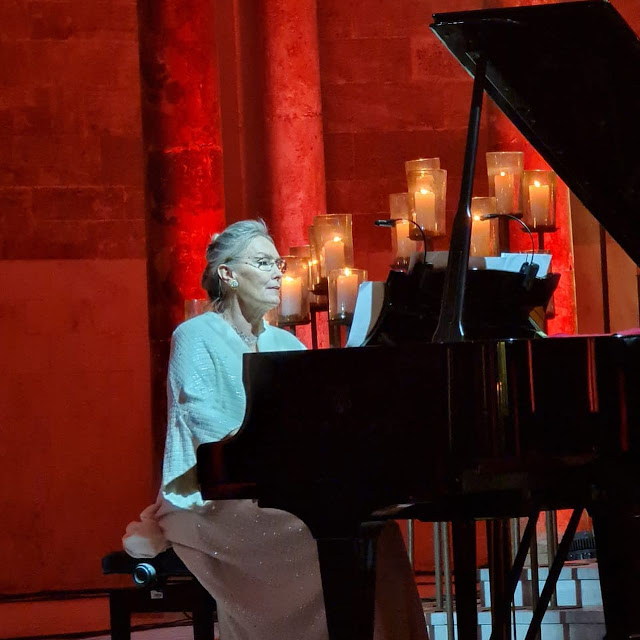Elizabeth Sombart’s “Singing the Nocturnes”
Elizabeth Sombart’s new release Singing the Nocturnes shifts her interpretive focus from Sombart’s past Beethoven work to Polish composer Frederic Chopin’s Nocturnes. The 21 tracks included on the release mark it as a sprawling affair, but it retains the impressive flexibility of being a work you can enjoy from beginning to end or else one you dip into piecemeal. Each of Chopin’s Nocturnes has power as standalone compositions and Sombart’s exceptional pianist skills exploit the potential inherent throughout. She is respectful of Chopin’s work without ever treating it like a butterfly encased under glass.
It is alive in her hands.
The Nocturnes are, in turns, full of wonder, melancholy, buoyancy, despair, joy, and high-flying bursts of lyrical energy. Few classical works are like it. It makes eminent sense that a musical artist as steeped and well-versed in tradition as Sombart would choose this Chopin work as the basis for a larger recording as every turn of her career has been shadowed by a close acquaintance with this level of composition.
Her past recordings of Beethoven works are among the best classical recordings of the modern era. Chopin is a very different composer than his esteemed German counterpart but Sombart has no discernible difficulty making any necessary stylistic shifts. It is an outgrowth of her extensive tutelage under instructors such as Bruno Leonardo Gelber, Hilde Langer-Ruhl, and Peter Feuchtwanger. She learned well from these and many other individuals on the way to establishing her own legacy.
This is the sound of that legacy in full flower. The measured cadence of her playing during pieces such as “Op. 9 No. 1 in B-Flat Minor” is peak Sombart. It is the same pinnacle, however, just a different angle with other pieces such as “Op. 9: III. Allegretto in B Major” and this dazzling cross-section of moods and color she delivers listeners is a cut above the typical classical release and challenges naysayers to reconsider their opinions about the form’s ongoing vitality.
She couples an outstanding musical presentation with a life that backs up its ethos. Sombart is decorated critically as few others artists are in any medium receiving the rank of Chevalier de l'Ordre National du Mérite for Lifetime Achievement from her home country France in 2006 and getting a Chevalier de l'Ordre des Arts et des Lettres in 2008. They aren’t empty platitudes, but substantial achievements.
There is no doubt that some of that recognition came from her work as one of Fondation Résonnance’s founders. The 1998 founding of this organization created hitherto unrealized opportunities for the infirm under long-term hospitalization, the incarcerated, and other disadvantaged population groups a chance to experience music in ways previously unavailable to them. They call it “paying it back” and Sombart has done so, in spades, by any measure. We can expect that to continue. We can also expect that her creative spirit is far from finished and that there are new vistas to conquer. Elizabeth Sombart’s Singing the Nocturnes is the work of musical artist with many more tomorrows to come.
**********
Cleopatra Patel
Surat, GJ. (IND)
10/2022



Comments
Post a Comment